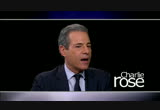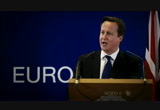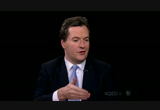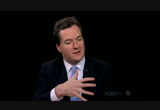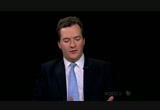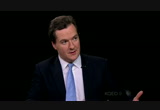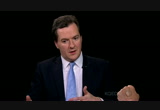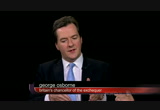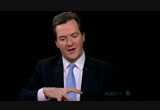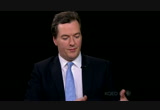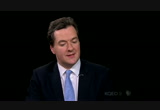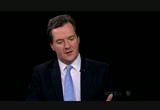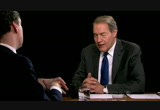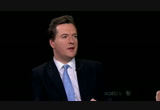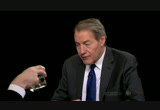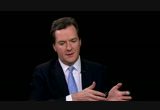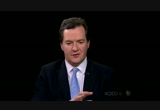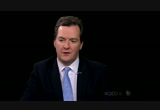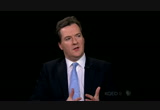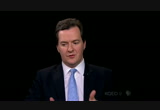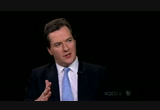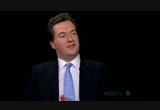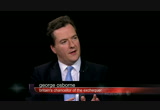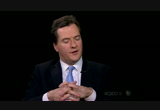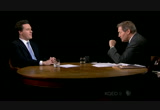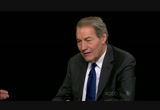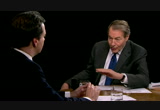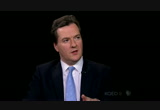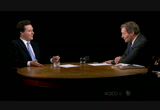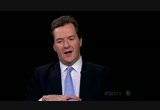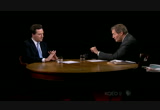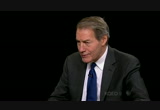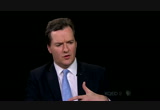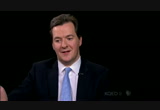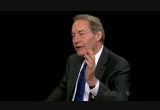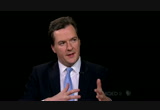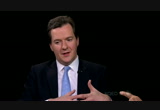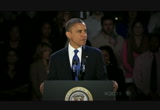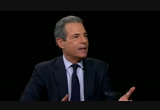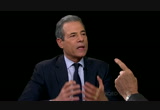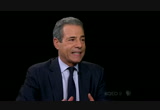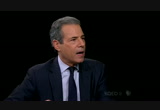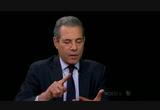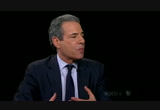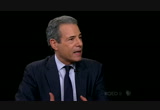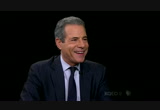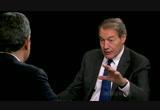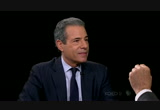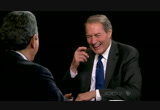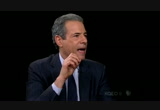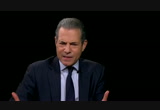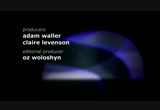tv Charlie Rose PBS December 20, 2012 12:00pm-1:00pm PST
12:00 pm
performance. >> rose: and rick stengel, managing editor of "time" magazine talking about "time" magazine's person of the year. >> i always like to feel the person who wins person of the year it's both backward looking in terms of the year past and forward looking in terms of what that person will do in the next year and beyond and obama is a perfect example of that. the next america is the america of today. which is why in effect he's person of the year. because he's the architect of this new america and i actually think it's a great thing because it's a more tolerant america, a more diverse america. >> rose: osborne and stengel. next.
12:01 pm
12:02 pm
>> rose: george osborne is here. he is britain's chancellor of the exchequer. he has been called the austerity chancellor. he continues to lead the increasingly controversial austerity process. in a piece called "god sieve the british economy" in the upcoming "new york times" magazine adam davidson writes "in the past two years the united states has experienced a steep downturn followed by steady though horrendously slow upturn. the british economy, however, is profoundly stuck. the u.k. has been put on negative watch on three largest credit rating agencies. the european union is britain's largest trading partner, europe's economy remains on prepares you footing despite several months of relative calm and there's a growing debate about whether the u.k. should lead the e.u. earlier this month we covered the "economist" magazine read
12:03 pm
"good-bye europe, look what happened when britain left the e.u. " i'm pleased to have george osborne back on this program and back at this table. >> thank you very much. >> rose: you're in new york city for a speech at the manhattan institute. >> i did that last night and had some meetings on wall street, seeing them there later. >> rose: so what's your message about the british economy to manhattan institute as well as the mayor and wall street? >> well, the basic message is britain is open for business. if you want to come and invest in a country that is dealing with its problems, cutting its business taxes, providing opportunities for companys to go britain is the place. i think we're doing better. >> rose: you do? >> i certainly do. >> rose: the numbers don't look like that. >> well, actually, look at the u.k. compared to many western economies, we are getting our deficit down, it's fallen by 25% in the last couple years. unemployment is falling. >> rose: falling? >> well, the last four --
12:04 pm
>> rose: in the last year? >> it's fallen below 8% in the last year. and the last monthly fall was the largest single monthly fall of unemployment in over a decade. so we've still got a long road to go. it's a difficult road to walk. i've inherited a set of problems that many western economies face but i would say britain is confronting those problems in a more head-on way than most countries. >> rose: including the united states? >> well, i think in the u.s. -- obviously you've got your own decisions to make about your fiscal problems and your issues and obviously your president and congress are engaging in that at the moment. but in the u.k. we have done that, we have got ahead of the curve and you can see in measures, for example, of how competitive the economies are, the you can is steadily becoming more and more competitive. >> rose: there's also this, the united states is engaged in this great debate that's going on in
12:05 pm
the white house with speaker of the house john boehner and the president of the united states, barack obama. what would be the optimal outcome of that debate as you look at it as a man who's dealing with the same kinds of problems? >> i'd say two things. one is we do need a resolution of this problem. i think the most immediate short-term problem facing the world economy-- i stress the word short term" is the u.s. fiscal cliff. i think if that is not resolved that is going to cause considerable problem for the world and indeed for the u.s. economy and it's already had some impact on the u.s. economy because it's delayed investment decisions. i think second it's entirely up to the elected representatives in the congress and the president to decide how they want to go about it. personally speaking, my personal view, i thought the plan that bowles and simpson put together looked pretty balanced. it's actually strikingly similar in many components to the
12:06 pm
british plan, about the same balanced tax and spending and about the same -- very similar proposals and corporate tax reform. so i think -- i don't think you can do -- you can deal with these large deficits solely by spending cuts. i think there has to be a tax element but i think you make the tax element too big then you damage the competitiveness of the country and we in britain, about 80% of the effort has come through spending cuts and entitlement reform and 20% has been tax through a consumption tax increase. >> rose: where did you get the entitlement reform? what did you do? >> we did a couple things. first of all, we had reforms on disability benefits to make sure there are tougher medical tests to get on to those disability benefits. many western countries find more and more people claiming these benefits. we took the decision to -- just recently to underrate the benefits, the general working age benefits so that -- working age welfare so it doesn't rise with inflation.
12:07 pm
it's going to go up by 1% for the next three years. we take a very difficult decision to increase the pension age from 65 to 66. so we've made some tough decisions but if you're not tackling entitlement reform and the cost to government, if you're not tackling the structural cost of these things then i think you're delaying the difficult decisions. >> rose: have you threaded the social contract? >> i don't think so at all. i think we can still say to people look, we are help you when you are in need. we will certainly provide for you in your retirement but the cost of doing these things has to be addressed. people are living longer to they're still offering a generous pension, you just have to -- you're going to have to work here an extra year before you get it or an extra couple years. when it comes to the working age benefits, we'll demand more conditionality. we're going to say "look, you
12:08 pm
have to show us you're looking for work." i mean, some of these things, by the way, the u.s. did back in the 1990s with your welfare pact. >> rose: the welfare reform act under president clinton. >> so we had to catch up in some respects. but we're doing that and the british government, certainly in my lifetime, the first time we've aggressively tackled the rising cost of entitlement. >> rose: have you done it -- and someone said i think writing about you that at least it stopped digging. meaning that you made the cuts but they realized that to make more cuts would be dangerous. >> i would say we're climbing out of a hole that britain fell into. we're -- again, other countries had to do it. very hi def it is, a rising that needed to be tackled and it's taken longer than we hope because of the international economic situation, the euro zone and, indeed, some of the issues we've had in our own
12:09 pm
banking system but we are doing it. look at britain. britain has faced up to its problems, it's got a political system that can deliver answers and we're doing in the a way that is unashamedly pro-business pro the private sector. >> rose: the theory of the case from the chancellor of the exchequer is get government out of the way? >> i wouldn't say get government out of the way. >> rose: if you can get investment and private sector to create jobs. >> i wouldn't put it as -- i wouldn't say get government out of the way. there are some places where you want government involved actually to help, for example, science investment, transport infrastructure. we're building high speed rail. the largest infrastructure project in the western world is a new train line going underneath the city of london. so government has a role so i wouldn't characterize it as get out of the way. but i would say government get its costs under control. government understands because when it's consuming as it was
12:10 pm
when i became a chancellor, close to 48% of national income, that's simply unaffordable. and unless you're prepared to tackle the cost of government, the cost of individual programs, the cost of entitlements than, frankly, you are just delaying and making worse the resolution of a country's problems. >> rose: five years from now you have have the debt under control? >> well, the deficit is coming down. we hope to have the debt falling as a percentage of national income by 2016, and we are aiming to get the budget into into balance 2017. now, of course i would like all this to happen sooner but one of the things i've always sought to do is not be inflexible about this, not be ideological about this but say, look, we've been hit by an external shock, we were hit by the euro zone crisis that's where 40% of our exports go and instead of ignoring that allow our -- stabilize the top
12:11 pm
rate, as long as you are committed to your plan of spending reduction, structural reform, entitlement reform, as long as you're getting that deficit down -- >> rose: i thought you said that when you came to government that it would take you five years. >> well, that's what we had hoped it would take. >> rose: you're beyond that now. >> it's taking longer. >> rose: how long? >> as i say, we've got a prom out to 2017. >> rose: british people, by 2017 we can get it done? >> the budget will be in balance. look, for world has proved a more difficult place in the last two years. we've had an external shock like the oil price shock, we have the euro zone problems. and all western economies have to understand that recovery from a banking process is more painful, more difficult more drown out than anyone would have hoped and tom reinhart --
12:12 pm
>> rose: who was on last night. >> well, i think he's very smart when he talks about the process of deleveraging and repair you have to go through when you've experienced the kind of financial shock that the u.s. or the u.k. experiences. >> rose: so the united states has to get through the same kind of deleveraging project -- >> rose: >> well, the u.s. has gone through that. you know what happened to your house prices. at least in the u.s. your banking sector was not such a significant part of your g.d.p., a significant portion of your -- multiple of your g.d.p. as it was in the u.k. my message is that the u.k. is dealing with these problems and is a competitive and attractive place to do business. i've done in the a way that i hope is the least economically risky or damage by, for example, the same protecting science and spending and education spending. and when it comes to taxes instead of increasing business
12:13 pm
taxes i'm actually cutting the main rate of corporation tax in the u.k. from 28% to 21% which is the steepest fall of any country in the world. >> rose: hoping that it will bring investment into the country? >> yeah, and i think it sends a message to people whether they're in shanghai or texas that britain is open for business. >> rose: why then is there almost a consensus of opinion that austerity is not working? >> i don't agree there's a consensus of opinion. there are a group of people who always argued for more spending in good times and bad >> i'm not talking about pundits i'm talking about nonprofit and people like that, even economists. but both of them -- i mean the whole -- seems to me financial institutions including the i.m.f. have raised questions about whether austerity has gone too far. >> well, i think there is -- people have said that us a
12:14 pm
stirty is not enough. you have to have structural reform. but i don't think there's anyone out there any more saying that we should have some big fiscal stimulus. when i started two years ago the big -- one of the challenges was what you should do even though you're sitting on 11.5% deficit there was an argument in the u.s. as well and it was striking during the recent presidential election. i don't think the word "stimulus was mentioned was. >> rose: well, i'll tell you what was mentioned, growth. growth was mentioned a lot. >> everyone wants growth. >> rose: and most argue that austerity programs do not enhance growth >> well, if you think growth comes from government then you would be --. >> rose: well that's not -- >> borrowing and making the fiscal situation worse. if you believe growth comes from
12:15 pm
the competitive private sector that has confidence has its debts under control and interest rates are low then you would see i think in the program we're following the right ingredients. >> rose: the argument goes a stimulus program can create demand and creating demand is essential to get the private sector going >> well, of course you need demand in the economy. and demand can be provided in part by very low interest rates and monetary policy. but that monetary policy can't be that way if people have concerns about your fiscal policy. so i would say partly having a credible fiscal policy anchors a monetary policy which is what the bank of england and others have been pursuing. >> rose: they've basically said that it's to make sure there's a decline in the unemployment numbers. that would be an idea. monetary policy? keeping it -- interest rates
12:16 pm
low. >> i think it's very interesting what they've done and there is a debate in britain about whether we should go beyond what we have now. i think there's a very high hurdle to be crossed before you do that before you move away from an inflation regime that has anchored stability. but we have a new central bank goern coming, mark carney, who's the governor of the bank of canada and we had the best person in the world. he has talked about what he's done in canada setting out a medium term path of guidance for interest rates. now, these are going to be interest rate decisions but it shows there's a debate to be had about the monetary policy game which i think should be led by academics. led by economics profession. governments can develop it
12:17 pm
happening. >> rose: is britain going to leave the european union? >> i certainly hope not. and it's my intention to make sure it does not. i absolutely believe britain's future lies being a member of the european union but it has to be a relationship with the european union that the british public are happy with. >> rose: what would make them happy? >> i think you can best sum it up in a campaigning slogan that were used in politics in the last part of the 1990s which is britains want to be in europe but not run by europe and that basically sums up the british attitude. if anything the euro zone is doing more to integrate, to have common fiscal and banking policies provides an opportunity for the u.k. to say you do that, you need to do that that to make your currency work. we're happy to be part of a single market, we're happy to be part of a free trading zone. we're happy to have the policies
12:18 pm
that come around and other policies that are part of the european union but we are not part of the single currency. and there are some things we'd like back. that's a debate that's just starting the n britain. it's just starting in the rest of europe. and i think britain is a very good argument to make that we can be active contributors to the european union but that does not mean signing up to everything that comes out of brussels. >> rose: would you support that as the main idea? >> well, he's certainly done a lot to help calm the european economy. i think the -- we've been doing this interview in june or july i think you will have been asking me quite rightly about whether the -- he's about to cut off his own and have some kind of
12:19 pm
financial crisis or bank failure we've removed along the tail risk of a bank failure and his program is the program he sketched out which hasn't come into operation but the program he sketched out of how there used to be help euro zone countries in trouble has done a lot to reassure the market that he says he will do and the european central bank will do whatever it takes to protect their currency. >> rose: has your attitude about what's necessary for britain changed since you have been in the office at 11 downing? >> i think i've become more conscious than perhaps i was two years ago that britain was in a global race. economic power has fundamentally shifted in our world and western economies face this duel decline
12:20 pm
choice do you do what's necessary to take advantage of these great new markets in asia and africa and the americas or do you basically surrender to decline? and i think that requires some very tough choices about retirement ages and education systems and welfare systems and being not prepared to tolerate poor performance. now i think actually my appetite for confronting those things has grown since i've been doing this job. >> rose: explain what you mean. >> i think, for example -- >> rose: your appetite for confronting these questions has grown? >> yes, so let's take education. each education system is different but basically the u.k. like other countries, face this is choice which is is our school system producing the kids with the right skills to do the jobs that are going to make the things that the chinese want to buy rather than be outcome peted by the chinese and other countries. now that means confronting teaching unions, vested interest
12:21 pm
local education bureaucracies, a culture where people -- all of us win prizes we've got to confront all of that. this government in britain is doing that. in welfare you have to confront the fact that the country can't afford to carry very large numbers of people in households who don't have opportunities who are basically trapped in a system where it pays not to work. we can't afford that anymore as a country. >> rose: and what happens to them? >> well, what we want to do is help them into work and help them get the skills they need to be part of that global economy rather than being left behind by it. but i do think the crash, the recession, the banking crisis, all this has actually accelerated a structural change that was happening anyway and i want to make sure that we get off the plane in shanghai and you feel this is a really exciting place to be you get the same kind of feeling in london
12:22 pm
or new york and that these are the places where the future is happening i think america and britain are the homes of innovation and success but they've got to remain so. >> rose: do you look at the new leadership in china and think they will change the way china is -- >> well, they're a new generation, i've met some of them. but the question -- i think they face enormous questions about their own internal political system i hope that there's a real international opportunity to nationalize their currency. instead of that being a threat it's an opportunity for london as a financial center to be the place where ewan trading takes place and, in fact the last couple of months for the first time in our history a chinese
12:23 pm
12:25 pm
do so powered by rolls royce engines and airbus planes. the that's a bit anglocentric but there are going to be products and service which is people and these countries will want for the first time in their families histories and there's a real opportunity for western businesses. >> rose: the larger middle-class, the emerging nations for anybody who has the skill with the products they want. >> yes, and i think we should see what's happening as a call
12:26 pm
for reform and a call to arms for us to do what's needed to get our economies in shape rather than as a threat we should try that and one of the thing i'm proudest of is that it's the least protectionist western country. there's no shutting people out. the chinese have just come and bought 10% of the london water supply. now actually -- >> rose: that's an idea you like isn't it? >> i don't know what would happen in the states if they came to buy 10% of the new york water supply. i think it's a good thing in britain that we're open to the world and even the fact that i went and got our central bank who wasn't even in our country shows that we are ready to take our place in a global economy and ready to bo b an open place that is -- it's with our values and our history. >> rose: if you're prepared to
12:27 pm
sell off some of britain's natural assets, i assume you could reduce your deficit and your debt much faster >> well, we are selling some of our assets. we just sent some of our mobile phones but those are one off things. to get these deficits down you have to tackle entitlements. if you're not tackling your welfare systems, the cost to some of your public services then you're not really going to be part of the problem. >> rose: here's what i hear you saying. bowles-simpson is a good idea. you like it as a model and even for england and great britain. so therefore you're in favor of spending cuts and tax increases because that's what they do and reducing deductions. all of that is good policy for the u.s. and good policy for great britain. >> i don't want to interfere in the u.s. political debate i simply make the observation that
12:28 pm
having erskine bowles and simpson in the past that it's a balance plan and it's similar to what the u.k. has done and i think it's working. >> rose: how is it similar on the tax side, the revenue side. >> well, i don't want to get into details with the political debate but in the u.k. -- >> rose: what are you doing to raise revenues? >> we are increasing -- we have a national sales tax, a v.a.t. we've increased that rate from 17.5% to 20%. that was the big tax rise. i think it's less economically damaging than increasing taxes on income. we have also as the bulk of the work we've done has come from reducing spending and entitlement and when it comes to business tax, far from increasing business tax i've reduced the rate from 28% to 21% making it aggressively lower than any other major -- with some deduction reform. >> rose: what percentage of your time asen if official of the
12:29 pm
british government is not economic related? 20? 30? 40? >> no, it would be -- i can't put a -- i mean -- i sit on our national security council. >> rose: so the chief financial minister it is sits on the national security council? >> yeah, these days so many of these foreign policy and security issues are tied up with the global economy we will discuss china -- >> rose: and china is not part of the national security deliberations? >> well, except that tight, as i know -- tim geithner, as i know, is deeply involved in asset freezing of terrorist organizations and sanctions with iran. so he finds himself -- >> rose: but you're different because of your political relationship to the prime minister. you are a different animal. you're like david axelrod.
12:30 pm
you are. david axelrod being -- secretary of the treasury. it's true. >> >> well -- >>. >> rose: but that's what you were you were the chief strategist for the campaign, >> >> yes, absolutely. >> rose: and you went back to chancellor of the exchequer and you said with the prime minister almost every important meeting in the foreign policy. >> well -- >> rose: then you add politics! in the end we have a parliamentary system. i'm an elected member of parliament. i'm not appointed. i'm an elected member of parliament in the u.s. system i'd be something like the majority with -- that would be my equivalent position. of course i care about my party and its political fortunes but they are intimately tide up with our performance on the economy and i think i've demonstrated that i'm prepared to do some
12:31 pm
pretty politically difficult and unpopular things in order to get economics right. >> rose: we've been talking about the austerity -- >> yes. you know, the textbook way to get yourself reelected is to hand money out, not take money in. but i fundamentally believe at a time like this publics around the world will respect governments that tackle problems head on, do not duck difficult decisions, are prepared to tell the truth to actually people who well understand that things need fixing. >> rose: all of that is true. this is also true: you have to convince him that the course that you're on is likely to lead to the result you're predicting. >> the british public has been remarkably supportive of steps we've taken -- >> rose: so austerity is popular in britain?
12:32 pm
>> i think people understand it's necessary and respect, i think politicians and governments prepared to undertake these difficult decisions. put it this way, they will not respect people who tell them that their son -- some silver bullet, some magic wand can be waved and these problems can be wished away. president british people understand this is not the case in funny ways i think the public are often ahead of the political classes. the public understands there are deep seeded problems in our economy -- >> rose: i agree with you totally. >> people being the grown-ups that they are they will respect that. >> rose: okay. there is this also. the labour party in all the pollings is ten points ahead of you. >> about that, yeah. >> rose: what's happening? why are all of aud a sudden labour, which was in a low ebb after the election is now ten points ahead?
12:33 pm
>> well, first of all, we're in the middle of the midterm. you are literally speaking to me halfway through this -- >> rose: this day or this week? >> actually end of november was the middle. so we're right in the middle the conservative party is basically holding the people that voted for it -- >> rose: but the liberal party is -- >> our partners, the liberal party have fallen a lot in the polls and some of the protests have gone to labour. but when you fleb a bit and you ask who do you trust on the economy they say the conservatives. when you who they prefer as a party leader they prefer the prime minister to be. they prefer david cameron over the labour leader. so i think we've got strength there and i don't think we can be complacent. we have to go out and try hard for it. i think in the end my opponent-- this is is going to -- my opponents say we're sorry, we've
12:34 pm
spent and borrowed too much, we won't do it again. if they say those things they're in better shape than they are today to win the election. >> rose: do you think about being prime minister? >> no. >> rose: how can you not? you're a young man, you've run a successful campaign. you're the chancellor of the exchequer. you sat in parliament. wouldn't you someday say "i could be prime minister"? >> you know, i don't think that. what i think is here is -- i've got to get this job right, i've got to give this job my all. this job is important enough and i'm just 110% focused on it. and my p.m. is a good friend of mine. i ran his campaign to be the prime minister he's very much the person i would want doing the job and i think he's doing extraordinary -- >> rose: this is not a gordon
12:35 pm
brown thing, is it? >> it's the opposite because gordon brown was always -- he was chancellor but he was always very biter that he hadn't become prime minister. i ran david cameron's campaign, literally, to be the best prime minister and leader of the party so that the relationship, if you study british politics you'll know that the relationship between the chancellor and the prime minister is often one of the most difficult ones in british politics. >> rose: and he's a 10 and you're 11. >> we often talk about the tensions. that tension doesn't exist today and the people have looked in vein for some argument between us and they can't find it. >> rose: so can i imagine on some evening like at 10:00 you'll think i'd just go over to 10 and see how david is doing? >> well, we are -- we're next door neighbors and our children
12:36 pm
are good friends as well. so it's -- it's a strength, a partnership on the economic policy front that is good but in a town like this you have the treasury and the prime minister arguing with each other that would be the best. >> rose: you are part of t decision making process there for all the reasons we said. syria. >> well, deeply depressing. the assad regime -- l go. >> rose: how will it go? >> well, i think there are some encouraging signs it's so depressing and bloody and people are losing their lives but it seems to me that the opposition forces are making some ground. they're more unified than before. you can officially recognize as the future government of syria.
12:37 pm
i think that's encouraging but encouraging against the backdrop of a lot of people losing their lives. >> and libya? >> well, libya, obviously there was the awful attack on the u.s. consulate in benghazi and the death of a very brave american ambassador. you know that points to, of course, serious problems but it's again the backdrop n which it's been quite a success story since the war there. you do have a functioning government. auto revenues have come back and that's important because they can provide revenues for their general population. there's obvious a serious security problem in some parts of the country but it's been a lot better place today than it was two years ago. >> rose: after syria, what happens when they try to move chemical weapons? >> well, both president obama
12:38 pm
and the british government have given the clearest possible warning -- >> rose: there will be consequences. >> very clear consequences and i think the syrians understand that and those who support us. >> rose: thank you for coming. great to see you again. >> thank you. >> rose: tonight in this election >> tonight in this election, you, the american people remind us that while our world has been hard, while our journey has been long we have fought our way back and we know in our hearts that for the united states of america the best is yet to come. (cheers and applause) >> rose: barack obama has been named "time" magazine's person of the year for 2012. he received the honor as
12:39 pm
president-elect in 2008. the title goes to the person or thing that has most affected the news and our lives for good or ill and embodied what was important about the year. the magazine's list included mohamed morsi, tim cook and malala yousafzai, the pakistani teach ager shot for advocating girl's education. rick stengel joins me now. he's the managing editor of time. how do you go about selecting the person of the year. and in the end you decide. >> and in the end i decide. >> rose: don't you love privilege? >> (laughs) it weighs on your shoulders always time, as you know. probably beginning in the middle of the year we start thinking about it, a month or so later i start asking people like you, members of the "time" 100, our correspondents, editors, writers start sending in suggestions and
12:40 pm
have meetings and then we start talking about ideas, tloung out names, sometimes it's not a person but a group of people, like last year, the protester. in the end we whittle it down to a short list and then we choose. >> what is it you that you measure them by? >> it's a historical thing, charlie. you measure them in part by past person of the year winners. i always like to feel the person who wins person of the year is both backward looking in terms of the year past and forward looking in term of what that person will do and obama is a perfect example of that. >> rose: but last year you chose the protester. >> yes, because last year i thought there was so much going on in the world with the arab spring, with the protests in russia, on wall street that there was something in the air. that we've seen all through this year that some spirit of
12:41 pm
rebellion, some spirit of rebellion against the establishment and i wanted to try to tap into that. >> rose: tim cook was a finalist was he? >> tim cook came by for an interview last week. part of it was animated by the fact that steve jobs famously bemoan it had fact that he was never person of the year and i thought -- >> rose: why wasn't he? >> well, i guess the timing was never right he thought he was going to be person of the year in 1984. that the computer was going to be the thing of the year and i thought about steve last year but, of course, he died during the year. we've never put a dead person as person of the year before and i didn't think that was a great -- >> rose: so you missed the opportunity so therefore -- >> so therefore i thought -- i wanted people to look at tim cook. he's had an hay maizing year, he's doubled the market cap of apple since steve died. the number of launches over the past year has been extraordinary and i think he's an interesting fellow. >> rose: and malala yousafzai. >> yes.
12:42 pm
malala was a great crowd favorite and she's an extraordinarily brave young woman she would be both the symbol and the reality of somebody who is courageously standing up for women's rights, girls rights, the right of young women to be educated. >> rose: courageous is a good word to choose. >> it's a good word. but she's also a 15-year-old girl who was, of course, wounded by the taliban and she showed extraordinary courage since then. in fact, our story begins about her making calls from her hospital bed to young women in pakistan saying you can't give up. i thoughting in the end that obama merited the -- >> rose: mopls was an a contender. mohamed morsi. >> yes,. >> rose: he was on the cover of the magazine? >> yes. >> rose: that probably gave it away -- >> for followers at home like yourself. that image was by the same
12:43 pm
photographer who did barack obama. >> rose: so here is -- there it is. tell me about that. what what are you trying to say there? >> so the photographer is a wonderful, wonderful photographer and we try -- i wanted to have a picture of obama that didn't look like familiar pictures of obama. he may be the most photographed man in the world. i also wanted something that conveyed the mood of the time. and particularly in the post-newtown period we're in now. that grisly and horrible massacre. the mood of the country has changed and he stepped up in a way that we really haven't seen and so i wanted the picture to be both familiar and unfamiliar both timeless and timely it's somber. it's meditative. it's deliberate. i think it's a really iconic picture. >> rose: you also have a profile in there of him and talking about this election which he
12:44 pm
says is more important than perhaps 2008 because he did not want 2008 to look like an anomaly. >> yes, and the people by michael sherer, our white house correspondent, is a terrific story. that's the best way to look at it. because 2008 people thought maybe it is an anomaly. maybe it is as, barack obama said, lightning in a bottle. this attractive african american candidate, we've never had an african american president before. what i think he means by saying this was more satisfying is this that this ratify it is changes that gave an inkling of. there's something going on now. there's a political and cultural realignment going on. there's been a lot of talk of the coalition of the ascendant, hispanics, minorities, millennials, college educated women. well, they're here to say it. >> rose: they have many reasons for this but by far the changing demographics and obama's unique
12:45 pm
ability to capitalize, his name is on the ballot of a next america, a younger more diverse america turns out at the polls. in 2008 blacks voted at the same rate as whites for the first time in history and it broke records. numbers suggested both groups did it again in 2012. even non-battleground states where the obama forces were far less organized. when minorities vote, that means young people do, too, because the next america is far more diverse than the last and when all that happens obama wins. he got 71% of the latinos, 93% of blacks, 73% of asians and 60% of those under 30. >> right. it's amazing. and it t next america is the america of today which is why he's the person of the year because he's the architect of the new america and i think it's a great thing because it's a more tolerant, diverse america and to add to those statistics, one of the most amazing statistics is that mitt romney got the highest percentage of the white vote since dwight
12:46 pm
eisenhower. he had 59% of white voters. that's the same percentage of white voters that george herbert walker bush got in 1988 when he had more than 400 electoral college votes. so the terrain has shifted. it's near say. that next america is a current america and barack obama is the symbol and the beneficiary of it. >> rose: i saw something today where we're talking about the fiscal cliff and that the president was worried because he worried that the republicans somehow didn't want to give in to him. they have some animus against him. >> i thought that was a strange comment. elections have consequences and i think the republicans need the election returns just like the democrats do. and he has a great deal of political capital. and how is he going to use in the a second term? in the interview we did in the oval office last week i thought he was much more assertive and
12:47 pm
up front about what his agenda is going to be and what he cares about and wants to try to do. he isn't running for reelection again. he never has to say i approve this message again. we will really start seeing what barack obama believes and what he cares about. >> rose: i just happened to last night at one of the christmas parties in new york city, james watson, nobel laureate, the man who taught us what the d.n.a. -- d.n.a. structure looks like. he said what that what he hoped most for the president would be big bold ideas, not unlike using the easy example -- interviews saying we'll go to the moon in ten years. he wants this president to think big and to have goals. he'll be pleased i remembered this conversation. goals, goals, goals. >> rose: look what he talked about today about gun control. he's setting a goal. what we've realized is that he doesn't get down in the weeds, he says "i want to get right over there.
12:48 pm
i'm not sure how we'll get there let's get together." for example in our interview in the oval office he talked extensively about the criminal justice system and the flaws of the criminal justice system and the fact that we spent so much more money putting young men in prison for non-violent crimes than we spend on research and development, tell mr. watson that, that obviously that's something he cares about. he never talked about that during the first turn, he didn't talk about it during the election, he feels like he can talk about these kinds of elections and he never has to run again. >> rose: i hope he'll be able to -- he kind of made clinton explainer in chief during the campaign and after the convention speech that he takes time now to really go out and speak. and now this program and others, he can communicate some of the essence of who he is and how he feels about the country without them having to worry he'll make a mistake that mikt do do
12:49 pm
something. >> i hope so, too, charlie because he's a great explainer. he's a natural teacher and i feel like he hasn't let us inside of that process enough and when people hear that, that's what we liked about him in 2008 that he did explain things. and one of the fascinating things in michael's piece is that the obama campaign discovered that these people who say they're not interested in politics who don't like the republicans who do not like the democrats, who do not like washington, you know what they do like? they like barack obama because they sense something about him that he's not a part of it. so even that first debate there we thought was a debacle, a lot of us people thought "well, i liked that because he's not playing that game, he's not playing gotcha, he's not saying nasty things." that that helped the balance for him. >> rose: i'll tell you who didn't like it, his campaign staff. >> i asked, -- at the end of the interview i said to him i ran into somebody during the course of the campaign who useded to
12:50 pm
work for you who is now the mayor of a major american city. >> rose: could it be chicago? (laughs) >> and i said to him "what happened, rahm, in that first debate?" and rahm looked at me and said "he had a hawaii moment." and when i said that the president laughed very loudly and he caught himself back and he told this lovely story there meant meant that when things seemed to be going to hell in a hand basket he and rahm would sit in the oval office and think "what wild we rather be doing?" and obama said "we'd rather that v a t-shirt shop in hawaii selling t-shirts" then he paused for a second and said "maybe smoothies, too." and that's what we used to chat about. and rahm was saying maybe he just was thinking about the smoothies on hawaii. >> rose: that's an interesting detail about that.
12:51 pm
i saw rahm emanuel interviewed and i didn't get this from him yesterday. it's the idea that he still plays, a role. he's still connected to rahm emanuel and gives him advice when asks and asks him advice often. >> i think that would be smart. >> rose: let me talk to you, please, about nelson mandela. you were his friend. he's 94 years old. he clearly has not been well: >> he's not well, charlie, he stopped having any kind of public events a couple years ago. he -- you know, a man who -- so much confidence felt that he just wasn't up to being in public and his memory wasn't up to it and would occasionally forget people's names and he's so proud that he didn't want to
12:52 pm
subject himself to that. i think he's struggling. he's 94 years old. i think some things are failing. he doesn't want to be out there publicly and i think we have to respect that. >> rose: when he dies, what will south africa say? >> well, south africa is planning an extraordinary 10 to 1214 days of events. >> rose: appreciation? >> an appreciation, recognition of his historical role around the world, not just in south africa. i think for them they want people to use that as a touchstone for what south africa has accomplished and remind people of how far they've come and the road they didn't take which would have been a road of civil war. they've been very, very successful. i know supreme problems with jacob zuma, but i think what
12:53 pm
they all want to do is touch base and connect with something that is universally approved of and that was nelson mandela's time in that office. >> rose: if someone came to you and said you knew mr. mandela and you would say yes, yes, very well. and they said tell me about him. where would you start? >> you know, i would start with his courage and the notion that he wasn't naturally brave. he would constantly say to me when he was telling me anecdotes about his days on the land and his time in prison he would say "man, i was so scared." and i thought to myself nelson mandela is telling me that he was scared and i sometimes say really? and he'd say well, it would be illogical not to be scared. what he showed and the people he was with in government is that courage is not the absence of
12:54 pm
fear, courage is triumphing over that fear. realizing that you are afraid, that it's logical to be afraid but you have to stand up and be courageous. that's the example everybody took from him. it's a great example for all of us because we look at someone like nelson mandela and we think well, he has no fear. he has the same fears we all have but he manages to triumph over them. >> rose: thank you, good to see you. >> thank you, charlie. >> rose: rick stengel, the editor of "time" magazine. thank you for joining us. see you next time.
12:59 pm
>> have you ever wished for perfect health or dreamed about living a long, vibrant life filled with all the things you love to do? well, i've gotreat news for you. in this show, i am going to share with you the secret cause of most all chronic disease. >> male announcer: internationally renowned digestive care expert and best-selling author, brenda watson, has spent her career giving the gift of vibrant health. >> i'm also gonna share with you the three early warning signs that your health is in jeopardy. then i'm going to give you the formula for living healthier than ever, for preventing and
149 Views
IN COLLECTIONS
KQED (PBS) Television Archive
Television Archive  Television Archive News Search Service
Television Archive News Search Service  The Chin Grimes TV News Archive
The Chin Grimes TV News Archive 
Uploaded by TV Archive on

 Live Music Archive
Live Music Archive Librivox Free Audio
Librivox Free Audio Metropolitan Museum
Metropolitan Museum Cleveland Museum of Art
Cleveland Museum of Art Internet Arcade
Internet Arcade Console Living Room
Console Living Room Books to Borrow
Books to Borrow Open Library
Open Library TV News
TV News Understanding 9/11
Understanding 9/11